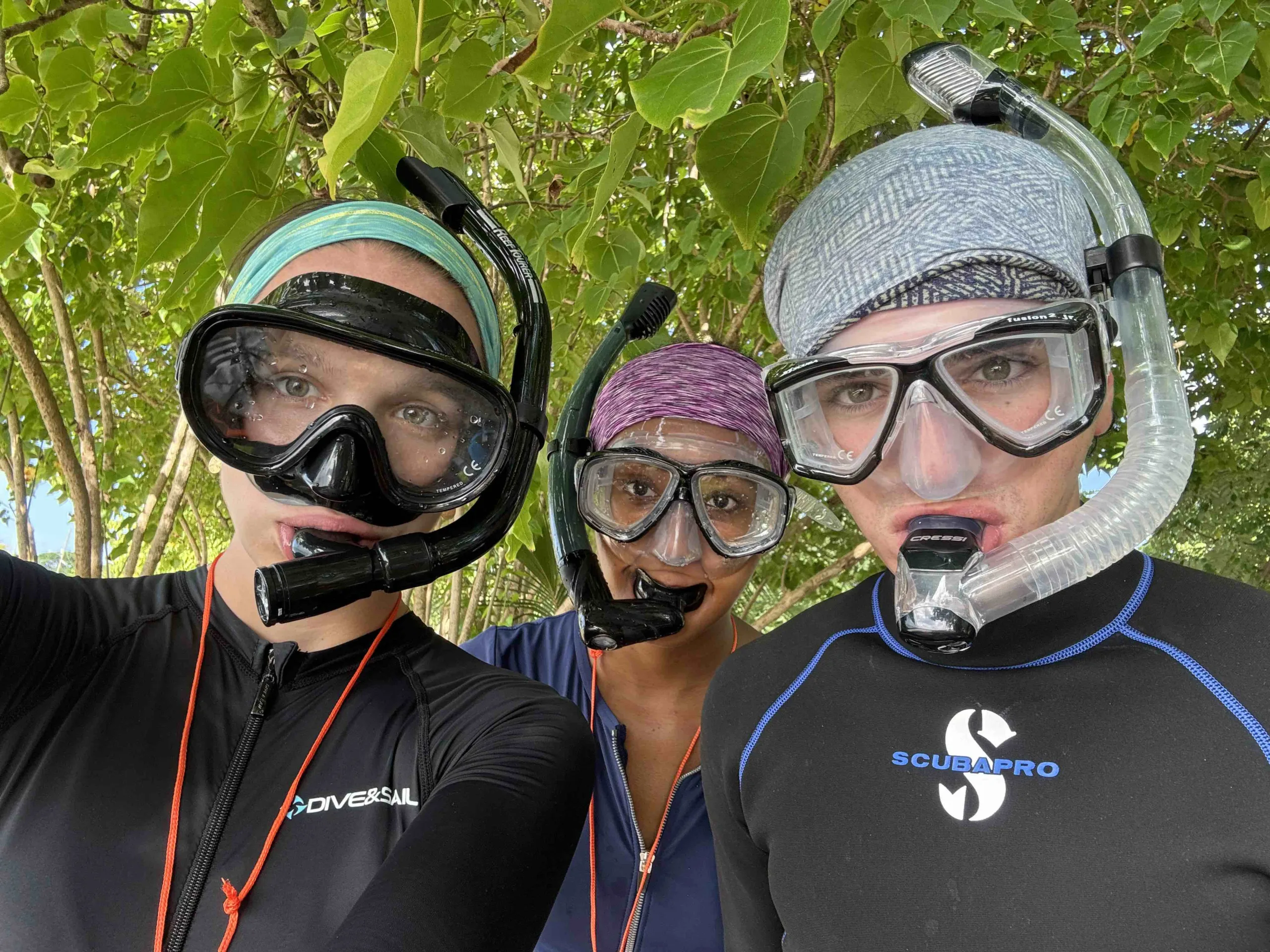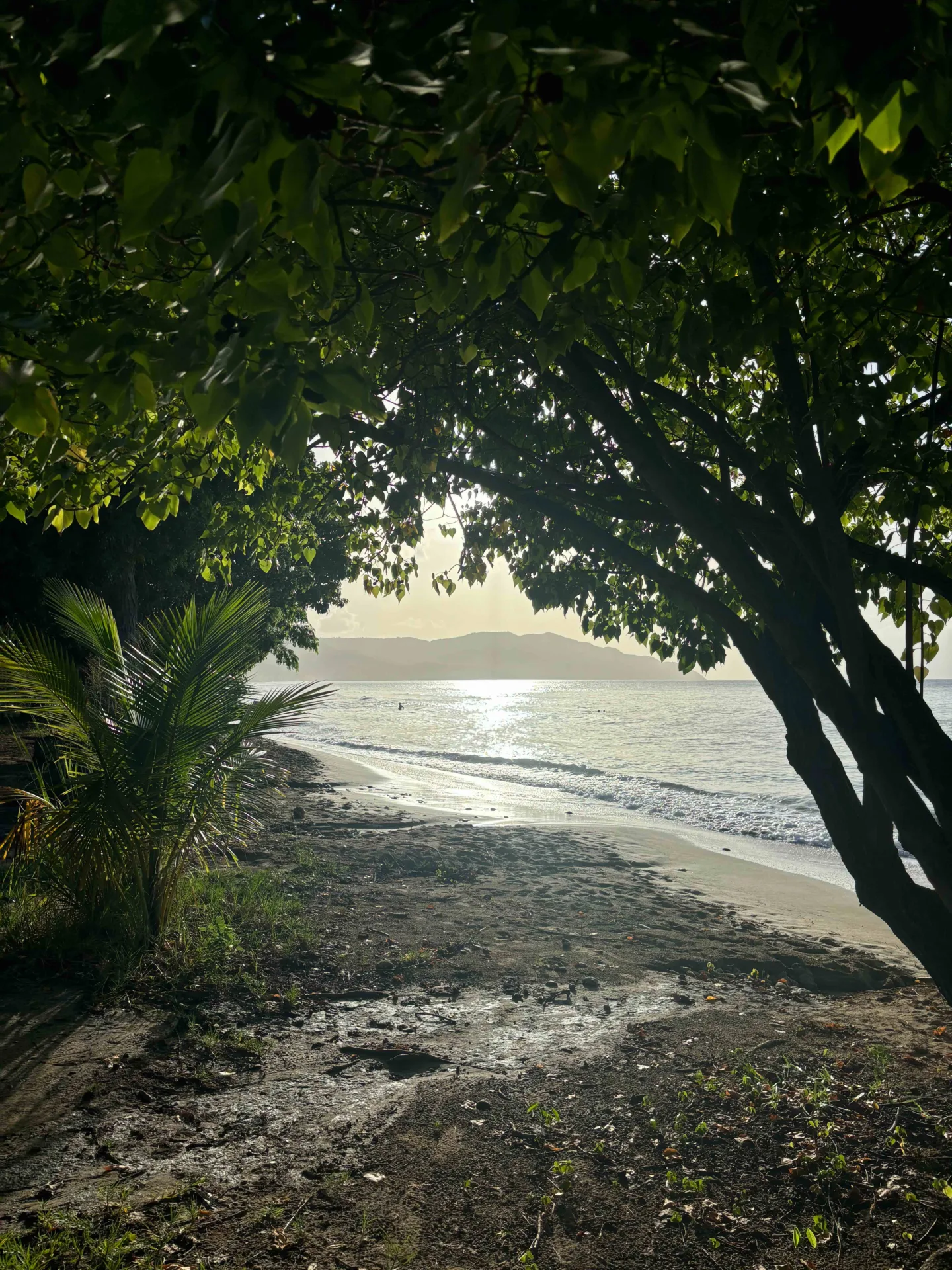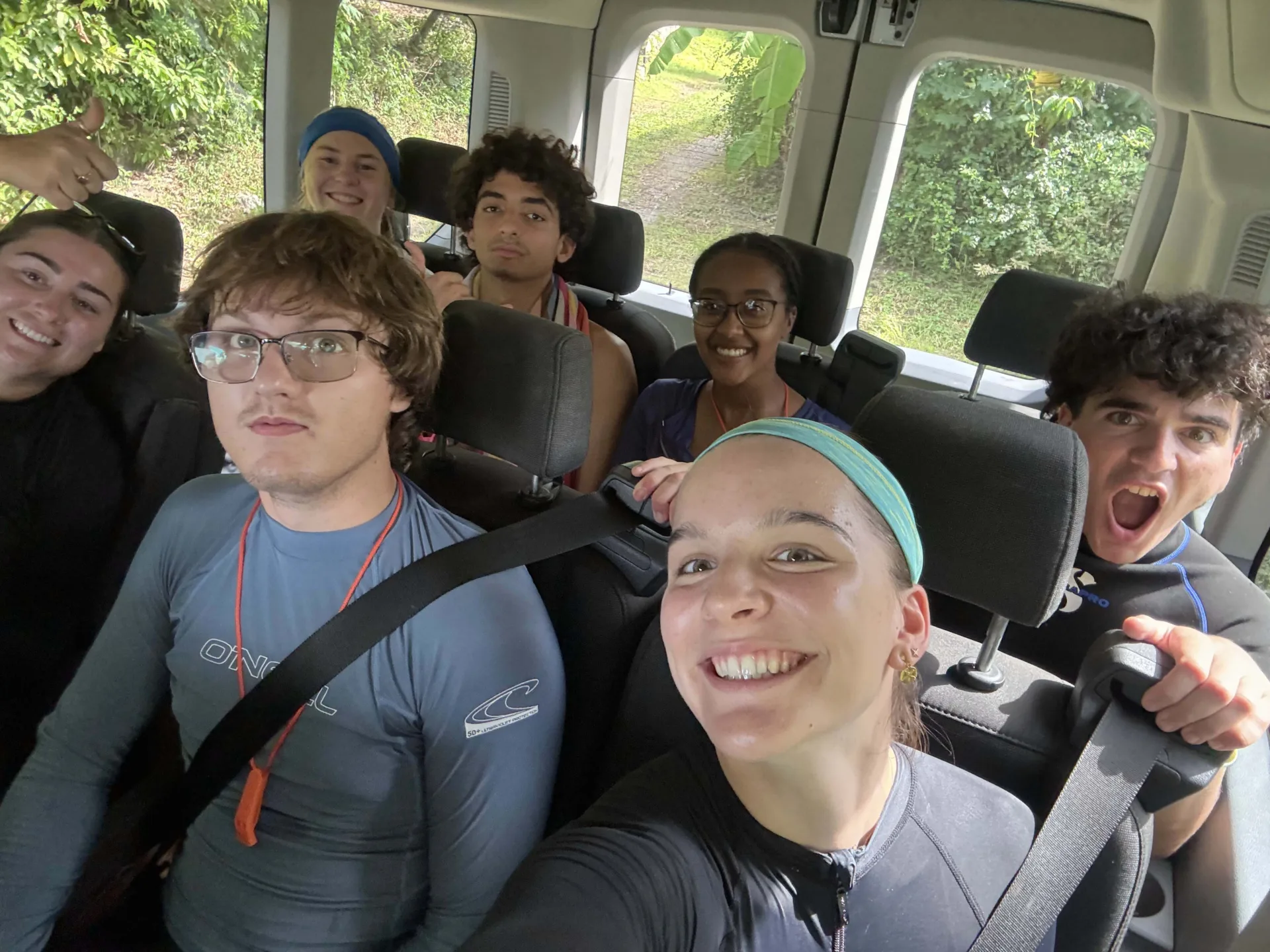Programs Blog
Exploring Frederiksted’s Pier…Underwater

Monday, October 14, 2024
Location: St. Croix, USVI
Weather: 80˚ F, light breeze
Hello once again!
My name is Katie Hallee, and I am from Norway, Maine and study environmental science at Wheaton College, Massachusetts. With a sparked interest in learning more about oceanography and coral reef conservation strategies, I decided that I needed to expand my learning environment past New England. Embarking upon the SEA Coral Reef Conservation Caribbean Program seemed like the perfect way to gain this hands-on research experience that I was craving, while also getting the opportunity to engage with local communities and cultures. Spending six weeks in Woods Hole heightened my anticipation for Caribbean snorkel research to the point that I felt like I was brimming with excitement. And now, we are here! The CRCC program has made the transition from the temperate ocean winds on The Cape to the tropics of St. Croix, dense with humidity. With this transition, our scientific learning possibilities have broadened tremendously. Rather than discussing how we will do benthic, fish, and invertebrate surveying, we are now getting to implement everything we have learned to actually conduct snorkel-based research! We spent the first couple of days in St. Croix “acclimating” while getting comfortable snorkeling in an uncontrolled ocean environment. But, today, our practice is over. The training wheels have come off and we are now ready to ride our bike.
The plan for today was to do our “Reef Recon” at Cane Bay, which will always occur the day before a reef survey. The purpose of doing a Reef Recon is to familiarize ourselves with the reef, determine where our belt transects will lay the next day during our surveys, and deploy the HydroCAT ocean chemistry sensor which collects data for 24-72 hours. At 9:30 AM we made the 30-minute drive to Cane Bay, and I kid you not, as soon as our van door swung open, Mother Nature unleashed her best work. It was downpouring and the ocean was swaying with huge swells. Heavy rain would worsen our visibility while snorkeling and the swells were too dangerous to deploy our water sensor. So, our first scientific lesson for our snorkel research is… science is unpredictable. As scientists, we must be adaptive. Especially with fieldwork, as researchers, we have to recognize that environmental conditions dictate our research schedule requiring us to be versatile with our plans.
So, adaptive is what we were. We packed our gear back in the van and came back to The Featherleaf Inn and altered our schedule. We shifted our plans for the afternoon to earlier in the day and began creating our dive slates in preparation for our reef survey tomorrow. We alphabetized all the abundant Caribbean fish and invertebrates and “sharpied” them on the dive slates to be able to easily identify and count organisms while we were snorkeling. This process was tedious and time-consuming, but now we have done all the preparation necessary for the survey.
With patience, the rainstorm passed, and conditions were clear for us to do our Reef Recon at Cane Bay! So, yet once again, we loaded our abundant gear into the van and piled ourselves back in for another 30-minute drive through the winding mountains of St. Croix. Swimming out to the reef was challenging; strong waves pushed against us, but as we persisted the waves calmed, and the wonder of exploring began. We have been studying fish flashcards for weeks, but there is no better way to learn than to truly observe. Being able to see the fish on my computer screen for so long right in front of me helps to conceptualize identifications better. The water was teeming with fish; black durgeons, surgeonfish, and bar jacks galore! Although we did see a great amount of bleaching and fluorescing corals, I saw the most live corals that I have seen so far since in St. Croix. Large elkhorn coral branched up from the sea floor, and I was astounded by the complexity of the structure. However, my biggest takeaway from our Reef Recon was that sponges do seem to be thriving despite the pressures of climate change. The sea floor was rich with sea fans, sea rods, barrel sponges, encrusting sponges, and tube sponges showing us their resilience.
I would like to express my gratitude to Heather, Craig, and Rich for continually working with us to create a semester filled with new experiences. I would also like to thank all the people we have had the privilege of talking with in St Croix including Celeste, Olasee Davis, Ginger Thomas, Corina Marks, and Elisa McKay. We are so appreciative of your time and to be able to learn from your life experiences!
Thank you so much for reading along. That is all I have for today!
Katie Hallee


Recent Posts from the Ships
- Ocean Classroom 2024-A collaborative high school program with Proctor Academy
- Collaborations and Long-term Commitments: SEA’s Caribbean Reef Program Sets a Course for Coastal Programs that Compliment Shipboard Experiences.
- Sea Education Association students prepare for life underway using state of the art nautical simulation from Wartsila Corporation.
- SEA Writer 2022, Magazines From the Summer SEA Quest Students
- Technology@SEA: Upgrades Allow Insight into Ocean Depths
Programs
- Gap Year
- Ocean Exploration
- High School
- Science at SEA
- SEA Expedition
- SEAScape
- Pre-College
- Proctor Ocean Classroom
- Protecting the Phoenix Islands
- SPICE
- Stanford@SEA
- Undergraduate
- Climate and Society
- Climate Change and Coastal Resilience
- Coral Reef Conservation
- Marine Biodiversity and Conservation
- MBL
- Ocean Exploration: Plastics
- Ocean Policy: Marine Protected Areas
- Oceans and Climate
- Pacific Reef Expedition
- The Global Ocean: Hawai'i
- The Global Ocean: New Zealand